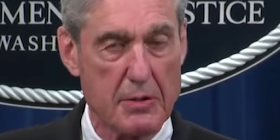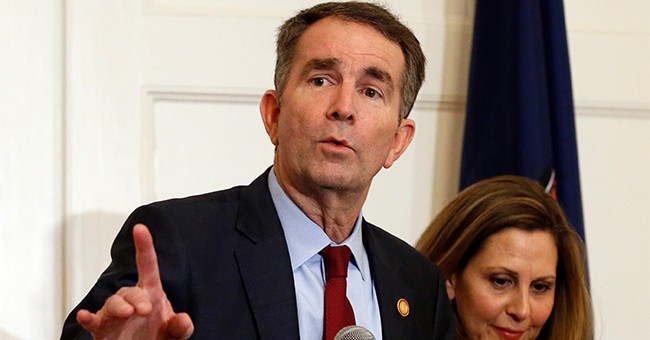Reports are that Senate Republicans are now coalescing behind an impeachment trial strategy.
According to The Hill, they lining up behind the idea of having a short trial with few or no witnesses, with the hope that President Donald Trump will get a quick acquittal and clear the decks for the election.
Some who previously spoke about immediately dismissing the matter, now appear to be agreeable to the short trial idea.
Sen. Lindsey Graham (R-S.C.) said his goal is “to have as short a trial as possible.”“I think there’s a desire by senators, quite honestly, to get this chapter closed and moved forward,” Graham told reporters.Sen. Kevin Cramer (R-N.D.) said that when it comes to a trial “shorter is better,” and that he thought his colleagues were coalescing behind that.“I think shorter is better for lots of reasons,” Cramer said. “I think people are ready to move on.” [….]“I’m ready to get this thing and get it done,” said Sen. David Perdue (R-Ga.). “It’s time for him to have his day in court. … I don’t want to a vote to dismiss. I want a vote to acquit. The president deserves to have due process.”Graham, who previously advocated dismissing the articles, added that a “motion dismissed will not stand. … I don’t want a motion to dismiss. I want a vote on the articles themselves.”
Sen. Josh Hawley said that if the White House was amenable to not calling witnesses, he was ready to vote right away. “I’m ready to vote now,” Hawley said. “I think the articles are a joke.”
The White House had previously spoken of calling a variety of witnesses from Hunter Biden and the whistleblower, to even Joe Biden, who just said he would not comply if subpoenaed for the impeachment trial. But their recent comments have appeared more open to the idea of the quick proceeding, with White House director of legislative affairs Eric Ueland saying “the facts belie the allegation and the facts speak very strongly for themselves.”
“Do we know enough? Have we learned enough after listening to all this to go on and vote on the two very weak articles of impeachment? Or do we want to have a show trial in which both sides try to embarrass the other and put on a, you know, an embarrassing scene, frankly, for the American people?,” McConnell said, characterizing the decision on witnesses.“Obviously, I think we’ve heard enough. After we’ve heard the arguments, we ought to vote and move on,” he added.
But once they start the trial it isn’t solely up to McConnell, any vote to dismiss or any vote on the rules would require 51 Senators will be needed to sign off. There are currently 53 Republicans and 43 Democrats, with 2 Independents.
No Republican Senators have said they agree with Sen. Chuck Schumer’s witness requests for people like White House Chief of Staff Mick Mulvaney or former National Security Adviser John Bolton to testify.
During the Clinton impeachment, they heard from three witnesses behind closed doors. Sen. Susan Collins (R-ME) told a Maine radio station that she thought that the Clinton process was a good model, although it’s not clear that that’s what she would be endorsing.
But Republicans have said that if Democrats want to call witnesses, then they can pull in Hunter and Joe Biden and ramp it up.
“Well, if we go down in the witness path, we’re going to want the whistleblower. We’re going to want Hunter Biden. You can see here that this is the kind of mutual assured destruction episode that will go on for a long time,” McConnell told Fox News Radio.Republicans believe they could have an advantage because the administration is expected to exert executive privilege to prevent Mulvaney or Bolton from testifying, setting up a lengthy court battle for Senate Democrats.Sen. John Kennedy (R-La.) made that point during a recent closed-door caucus lunch, telling his colleagues that while Democrats’ witnesses could be tied up in a months-long court battle the GOP witness wish list would not currently face the same fight, according to a Republican senator who attended the lunch.Kennedy echoed his warning publicly during a Fox News interview pledging that if Democrats want a “full-blown trial,” by calling witnesses Republicans oppose, GOP senators would follow suit.“If they want a trial,” he said, “my God, we are going to have a trial.”
Proceeding, while likely to an acquittal, still could open up some things they don’t anticipate, like the peeling away of Republicans from having a solid “51 vote block” on rules and/or witnesses. And might it not be better to let Pelosi sit in the hole she’s made for herself while Republicans concentrate on winning the election?
But there’s another question this doesn’t quite answer – what happens if House Speaker Nancy Pelosi continues to sit on the articles? Do they intend to proceed without her? Constitutional scholar Alan Dershowitz has said they can, but they still would need to change the present rules in order to do so since the present rules from 1986 presume the House presenting the articles to the Senate.














